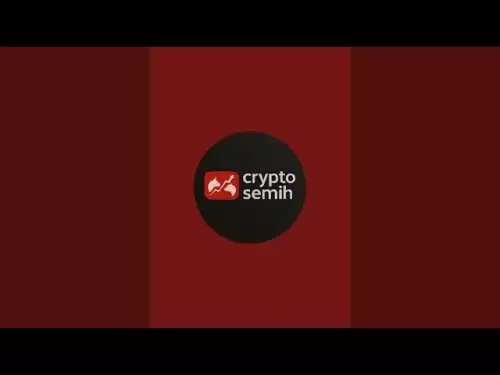 |
|
 |
|
 |
|
 |
|
 |
|
 |
|
 |
|
 |
|
 |
|
 |
|
 |
|
 |
|
 |
|
 |
|
 |
|
Cryptocurrency News Articles
Bitcoin's OP_RETURN war: Citrea rewrites the rules of data storage
May 06, 2025 at 01:35 am

A small group of developers attempted last week to sneakily change the default mempool policy of Bitcoin Core, the world’s dominant software for full nodes.
The attempt, which has sparked a brief but heated debate among bitcoin maintainers this month, follows a failed 2023 proposal to increase the data storage capability of OP_RETURN outputs.
The copycat 2025 proposal, which some are referring to as the bitcoin OP_RETURN war, was quickly flagged by critics before it merged into production.
Mononaut joked that it was akin to forking Bitcoin for quantum resistance, skipping the mailing list and BIP process, and jumping straight into merging code into production.
"They're merging code in production, skipping the mailing list and BIP process. Next up: forking Bitcoin for quantum resistance. Stay tuned!," he wrote.
On the other hand, supporters of the PR said it would help to modernize transactions that often catalogue arbitrary data in other parts of the blockchain, even before this proposal.
Ultimately, concerns about censorship of opposing viewpoints and undisclosed corporate interests have halted the PR from merging into mainnet.
PR 32359 was spotted on Friday, sparking a brief but heated debate among bitcoin maintainers.
The PR, which was written by Peter Todd and requested by Chaincode Labs' Antoine Poinsot, aimed to change the default mempool policy to no longer restrict the size of OP_RETURN payloads.
The request was made because the venture capitalist-backed bitcoin project Citrea, according to Todd, needs to publish 100-byte data packets for certain operations.
However, it would publish unprunable outputs instead of the more desirable OP_RETURN, due to OP_RETURN's 83-byte size limit.
This would proliferate the number of UTXOs, requiring full nodes to download and use valuable computation to validate an ever-increasing quantity of Citrea-created UTXOs.
This was the "harm" that PR 32359 would have "reduced," in the view of Murch on a detailed StackerNews thread.
The Chaincode Labs bitcoin developer explained that lifting OP_RETURN's datacarrier limit would allow corporate entities like Citrea to conduct its operations more efficiently - without requiring full node operators to download and validate excessive quantities of unprunable UTXOs.
"I was asked to open this PR by an active Core dev because entities like Citrea are using unprunable outputs instead of OP_Return, due to the size limits," confirmed Todd.
"This PR will add an option to the mempool policy to disable the code that limits the size of OP_Return payloads in the mempool."
This request, and the request to restrict the ability of users to self-configure that value as self-sovereign Bitcoin Core node operators, has resulted in a brief sort of OP_RETURN war among bitcoin maintainers this month.
It will be interesting to see if the dust settles on this topic this week.output: Last week, in a moment of uncharacteristically sneaky behavior, a small group of developers attempted to quietly change the default mempool policy of Bitcoin Core, the world’s dominant software for full nodes.
After re-introducing a failed 2023 proposal to raise the data storage capability of OP_RETURN outputs, critics flagged down the 2025 copycat before it merged into production.
Colloquially, some are referring to the surprising incident as a sort of bitcoin OP_RETURN war.
Mononaut joked that it was akin to forking Bitcoin for quantum resistance, skipping the mailing list and BIP process, and jumping straight into merging code into production.
“They're merging code in production, skipping the mailing list and BIP process. Next up: forking Bitcoin for quantum resistance. Stay tuned!”
Critics called the Peter Todd-written pull request (PR) 32359 chaotic, insane, malicious, no consensus, shenanigans, and vandalizing. On the other hand, supporters said the PR would help to standardise mempool policy and modernise transactions that often catalogue arbitrary data in other parts of the blockchain, even before this proposal.
Ultimately, concerns about censorship of opposing viewpoints and undisclosed corporate interests have halted the PR from merging into mainnet.
OP_RETURN should be understood as akin to "harm reduction" like providing sterile needles to heroin addicts to reduce the spread of disease.
OP_RETURN is undesirable but it is less harmful than bloating the UTXO set with data stored in unspendable fake outputs. pic.twitter.com/9nPVORSEsm
Backfooted, the camp in favor of lifting OP_RETURN’s datacarrier limit was quick to recast its actions as a valiant attempt at “harm reduction” for the long-term benefit of Bitcoin.
Devs from this camp explained their proposal with simple
Disclaimer:info@kdj.com
The information provided is not trading advice. kdj.com does not assume any responsibility for any investments made based on the information provided in this article. Cryptocurrencies are highly volatile and it is highly recommended that you invest with caution after thorough research!
If you believe that the content used on this website infringes your copyright, please contact us immediately (info@kdj.com) and we will delete it promptly.
-

- Binance founder Changpeng Zhao recommends Bitcoin and BNB as the first assets in Kyrgyzstan's National Crypto Reserve
- Jun 09, 2025 at 05:20 am
- His May 5 suggestion followed an invitation to join the country's National Crypto Council, marking a notable step in the nation's engagement with digital assets.
-

-

-

-

-

-

-

-






























































